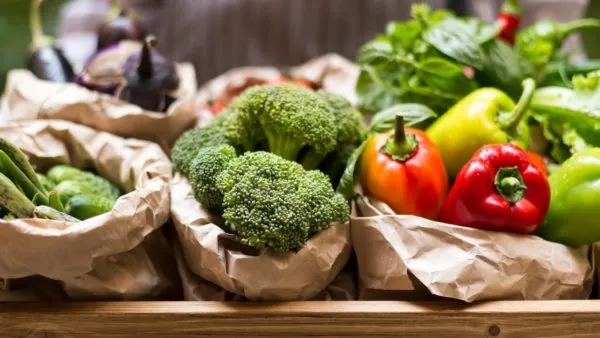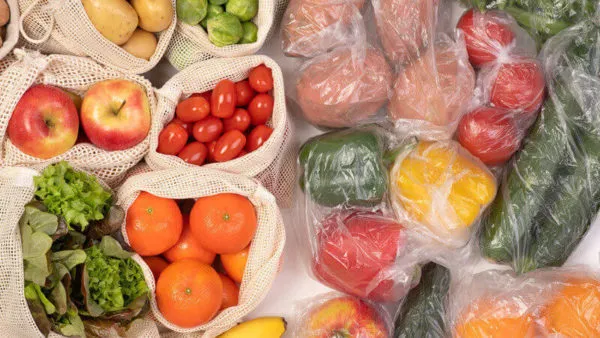People have different opinions about plastic bag and paper bag use. To enlighten your mind, we came up with the pros and cons so you can weigh in an objective view that will be beneficial to your company as you source out the best packaging for products.
What are the Pros of Using Paper Bags?

Environment-Friendly. Paper bags are eco-friendly because they are 100% biodegradable, reusable, and recyclable. Paper bags decompose naturally during the recycling process, unlike plastics, which emit toxins and hazardous gases when recycling them.
Special Paper Bags are Heavy-Duty. Contrary to popular belief that paper bags have a weak structure, there are unique paper bags that are heavy-duty, able to withstand pressure. They are thicker and carry a high paper basis weight of about 50 pounds.
Safe for Children and Animals. Paper bags are less likely to suffocate people and animals. With that being said, if you are in the business of selling items to children animals, you using paper bags as packaging is safer than using plastics.
Durable and Fashionable. Paper bags come in different sizes, styles, and designs. Depending on the type, designer paper bags can carry medium to heavyweight items and look elegant at the same time.
Useful in Brand Promotions and Marketing. Lastly, with paper bags, you can use them to create brand awareness as you design it with the colors based on your branding and include logos and tagline as one of your print-ad strategies.
What are the Cons of Using Paper Bags?
Not Waterproof. Once the paper is exposed to liquid and steam, it will not be useful because it will deform and unable to carry items. Plastics, on the other hand, can still hold off items even if they get wet.
Not as Strong as Plastic Bags. True enough, paper bags may have their limitations, especially when it comes to packing heavy materials. Plastics can hold off liquids and come in handy even in bad weather, whereas paper bags will be deformed when exposed to solutions.
More Expensive and Requires More Materials in Production. Paper bag production causes air pollution and emits 70 more air pollutants and 50% more water pollutants than plastic production. Moreover, you need more water, greenhouse gases, and chemicals to produce papers. So, the production itself requires more energy consumption.
Take More Storage Space. Since paper bags are heavier than plastics, you need more space to store them, especially if you order in bulk. Aside from that, you will also pay more on shipping costs if they come from overseas.
Manufacturing Requires Cutting of Trees. Americans consume more than 10 billion paper bags annually, equivalent to cutting 14 million trees to produce paper.
What are the Pros of Using Plastic Bags?

Lightweight and Water-Resistant. Plastics don’t take too much space, unlike plastic bags, and they are light, which only requires limited storage space. They are also water-resistant and practical all ‘year-round.
Durable and Functional. Plastic bags can carry heavy materials, especially if they are made of thick materials.
Affordable Packaging Material. If you plan to buy in bulk, plastic bags cost less than a cent. Unlike paper bags, you shell out five cents or more when ordering in bulk.
Production Requires Few Energy Consumption and Environment-Friendly. Producing plastics is less expensive and less complicated because it only requires low energy and less solid waste than paper bags.
Great Tool to Promote Your Brand. You can also print your brand’s name, logo, and tagline on plastic bags, making them a great tool to create brand awareness.
What are the Cons of Using Plastic Bags?
Harmful to the Environment. Improper waste management of plastic bags can harm the environment that can clog rivers and even sewage systems in the cities. It can cause litter everywhere — from the streets to fences, to trees, and more.
Danger to Marine and Wild Life and Contaminate Food Sources. Marine and wildlife animals can consume these plastics, which leads to suffocation, death, and even contamination of food sources.
Decomposition Takes 1,000 Years. Plastics break down through photodegrades, which means they break down through light. The process may take about hundreds of years and even up to 1,000 years to decompose, which takes up spaces on landfills.
Hard to Recycle. While plastic bag production is environmentally friendly, recycling is complex and less sustainable. It also requires machinery to segregate and recycle plastics, which are unfortunately not available in developing countries.
Final Thoughts
Countries like Bangladesh, Kenya, France, China, to name a few, have already banned plastic bags to protect the environment. Now that you know the benefits and repercussions of using paper bags and plastic bags, you can make an informed decision on your packaging materials.
Paper bags are eco-friendly in terms of use and functionality. If you care about the environment, then paper bags are a sure win for the brand, community, and nature.
Original Post : https://bagitanpackaging.com/paper-bags-vs-plastic-bags-pros-and-cons-of-them/

